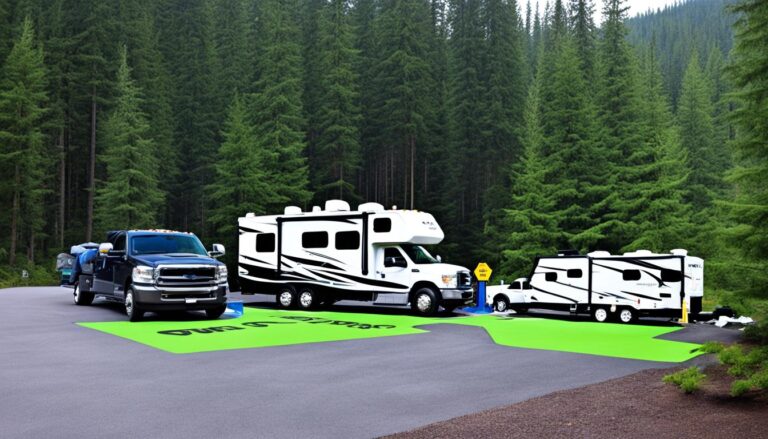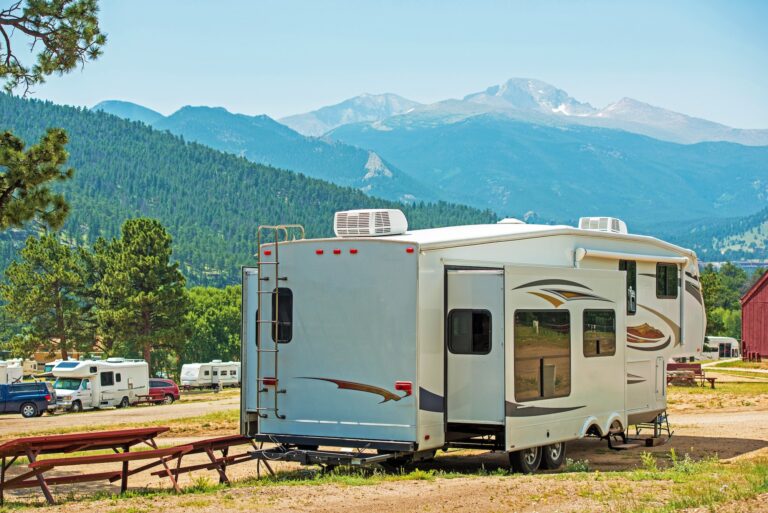Welcome to our comprehensive guide to budgeting for travel trailer expenses. Whether you’re a seasoned traveler or just starting out, it’s essential to have a solid budget in place to ensure you can fully enjoy your trips without worrying about unexpected costs.
In this section, we will delve into the importance of smart budgeting for your travel trailer expenses. We’ll explore the various costs associated with purchasing and owning a travel trailer, as well as tips for budgeting your trips and ways to save money along the way.
Understanding the Costs of Owning a Travel Trailer
Before purchasing a travel trailer, it’s important to understand the various expenses associated with ownership. Not only will you have to budget for the initial cost of the trailer, but also for ongoing maintenance and other ownership expenses.
Maintenance costs: Like any vehicle, a travel trailer requires regular maintenance to keep it running smoothly. This includes routine tasks like oil changes and tire rotations, as well as more significant repairs like replacing a faulty water pump or fixing a leaky roof. According to estimates, the average maintenance cost for a travel trailer is around $1,500 per year.
Gas expenses: When planning travel trailer trips, it’s important to consider the cost of gas. Depending on the size and weight of your trailer, you may need to factor in additional gas expenses. On average, a travel trailer gets 10-20 miles per gallon depending on the terrain and driving conditions.
| Travel Trailer Gas Expenses | Estimated Cost (Per Mile) |
|---|---|
| Gas | $0.12 – $0.15 |
| Diesel | $0.25 – $0.30 |
Insurance costs: Owning a travel trailer also requires insurance coverage. Depending on the level of coverage you choose, your insurance costs can vary. Some factors that can affect your insurance costs include the value of your trailer, the type of trailer, and where you plan to store it.
Depreciation: Like cars, travel trailers depreciate in value over time. In general, new travel trailers lose around 21% of their value in the first year, with an average annual depreciation rate of around 3-4%. It’s important to factor in depreciation when budgeting for your travel trailer and consider the resale value if you plan to sell it in the future.
Ownership expenses: Finally, it’s important to consider the overall ownership expenses of a travel trailer. This includes things like storage fees, registration costs, and any necessary upgrades or modifications to your trailer.
Understanding the True Cost of Ownership
When budgeting for your travel trailer, it’s important to consider all of these expenses and calculate the true cost of ownership. This means factoring in ongoing maintenance and repair costs, insurance, gas expenses, and depreciation. By taking these expenses into account, you can make a more informed decision about whether owning a travel trailer is a financially viable option for you.
Tips for Budgeting Your Travel Trailer Trips
Traveling with a travel trailer can be an amazing experience, but it’s important to budget wisely to make the most of your trips. Here are some practical tips for budgeting your travel trailer adventures:
Save Money on Camping Fees
Camping fees can quickly add up, but there are ways to save money. Consider staying at state or national parks, which often have lower fees than private campgrounds. You can also look into boondocking or dry camping, which involves camping in undeveloped areas without hookups. Just be sure to research local regulations and safety considerations before camping in these areas.
Plan Your Route and Timing
Plan your route ahead of time and try to avoid peak travel times when possible. This can help you save money on gas and camping fees. Consider taking shorter trips to nearby destinations instead of long-distance trips that require more time and money.
Bring Your Own Food and Entertainment
One of the biggest expenses on any trip is food and entertainment. Plan ahead by bringing your own food and cooking supplies, as well as games and activities to keep you and your family entertained. This can save you money on eating out and paying for expensive attractions.
Create an Emergency Fund
It’s important to have an emergency fund set aside for unexpected expenses, such as repairs or medical bills. Aim to save at least 10% of your travel trailer expenses in an emergency fund, and add to it as needed. This can help ease the financial burden of unexpected expenses and keep your adventure on track.
Financing Your Travel Trailer
Travel trailers can be a significant investment, but there are financing options available to help you make the purchase. It’s essential to understand your options and secure the best financing rates possible to ensure your budget remains manageable.
Traditional Loans
One of the most common financing options for travel trailer purchases is a traditional loan from a bank or credit union. These loans typically have a fixed interest rate, and terms can vary depending on the lender. To secure the best financing rates possible, you’ll need a good credit score, a solid employment history, and a down payment. Be sure to shop around and compare rates from several lenders before making a final decision.
Financing Through the Manufacturer
Some travel trailer manufacturers offer financing options to their customers. These loans may have more flexible terms and lower interest rates than traditional bank loans. However, financing through the manufacturer typically requires a larger down payment and may have restrictions on the type of trailer you can purchase. Be sure to read the fine print and compare rates before making a decision.
Leasing Options
Another financing option to consider is leasing your travel trailer. Leasing allows you to make smaller monthly payments and upgrade to newer models more frequently. However, leasing typically requires a higher credit score and may have strict mileage restrictions. Be sure to read the lease agreement carefully and understand the terms before signing.
Calculating the True Cost of Your Loan
When budgeting for your travel trailer, it’s crucial to calculate the true cost of your loan. This includes the monthly payment, interest, any fees, and the total amount of interest paid over the life of the loan. Use an online loan calculator to estimate your monthly payments and total interest paid. This will help you determine if the loan is affordable and fits within your budget.
Tips for Budgeting Your Travel Trailer Trips
Travel trailer trips can be an exciting and memorable way to explore new locations and create lasting memories with family and friends. However, it’s important to budget your trips wisely to ensure you can enjoy your travels without breaking the bank. Here are some practical tips for budgeting your travel trailer trips:
Save Money on Camping Fees
Camping fees can quickly add up, especially if you’re traveling for an extended period. Look for camping spots that offer discounts for longer stays or offer free camping options. You can also consider boondocking, which is camping in a location without electrical, water, or sewer hookups. Boondocking is generally free, but it’s important to research local regulations and restrictions before setting up camp.
Plan Your Route and Timing
Planning your route and timing your trips can help you save money on gas and other expenses. Consider traveling during off-peak times when gas prices are typically lower. Also, plan your route to minimize tolls and other fees. Use online resources to estimate your gas expenses and budget accordingly.
Bring Your Own Food and Entertainment
One of the biggest expenses of travel trailer trips is eating out and paying for entertainment. By bringing your own food and entertainment, you can save a significant amount of money. Plan your meals ahead of time and prepare them before you leave. You can also bring board games, books, and other activities to keep yourself and your travel companions entertained without spending money.
Have an Emergency Fund
Even with careful budgeting, unexpected expenses can arise. It’s crucial to have an emergency fund set aside to cover any unexpected expenses, such as repairs or medical bills. Experts recommend having at least three to six months’ worth of expenses saved in an emergency fund.
Conclusion
By following these tips, you can enjoy your travel trailer trips without overspending. Remember to plan ahead, budget wisely, and be prepared for unexpected expenses. With a little bit of effort and preparation, your travel trailer adventures can be both enjoyable and affordable.





